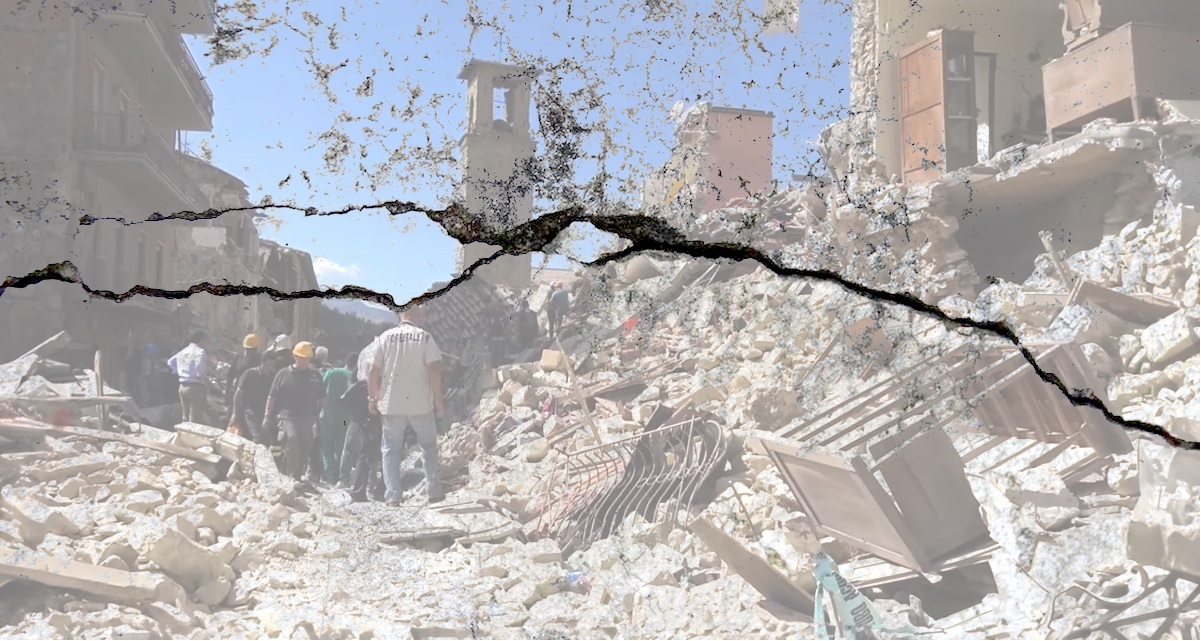Registration
Register within 20 April 2024 by filling out our online application form.
NB: Online registration is possible from 20th of February until 20th of April.
- Earthquakes and seismic hazards (GEO-DEEP9510) is mainly an offer to PhD candidates enrolled in the Norwegian Research School for Dynamics and Evolution of Earth and Planets (DEEP). If you want to become a member, register through our online form available on our web page.
- PhD candidates who are admitted to other education institutions than UiO must apply for visiting PhD status to be able to take the exam. This is easily done through registration form by supplying the right documentation and information. Your study right at UiO will be limited to this course.
- Master students and postdocs are welcome to follow the course as well, but we cannot offer you an exam result directly.
- Our capacity is not unlimited so we will make the final decision on who will get a spot based on your background and motivation.

Image from Leggi il Firenzepost obtained through Wikimedia https://commons.wikimedia.org/wiki/File:2016_Amatrice_earthquake.jpg. Media from YouTube. Modified by exposure correction, AI generative fill, and filter based on a crack image. CC-BY3.0 license https://creativecommons.org/licenses/by/3.0/deed.en
Course content
The course provides a comprehensive overview of earthquake mechanics and seismic hazards. We will discuss geological evidence for seismic activity, mathematical models of earthquake recurrence, and their applications to the evaluation of seismic hazards. We will also consider specific regions with high seismic risks as well as the possible origins of deep earthquakes.
Learning outcome
After completing this course, you will be able to
- Discuss the main theories that explain the generation of earthquakes and their recurrence.
- Describe the structure of fault zones at multiple scales and the effect of this structure on earthquake dynamics.
- Recognize traces of earthquakes in the geologic record, both in hand samples and in the landscape
- Access and use geophysical and geological datasets of use in regional earthquake studies.
- Understand the variety of information provided by seismic hazard assessment and how this can inform mitigation efforts in specific regions of interest.
- Present, discuss, and evaluate the contents of research articles that analyze earthquake activity and hazards
Prior to the course
Prior to the course week the students will receive relevant information and course materials from lecturers in order for preparation.
Recommended previous knowledge
GEO4131- Geomechanics
Teaching
The course is centered on a one-week session (about 40 hours) held in Oslo. This includes lectures and practical software training. Course literature will be pre-selected and distributed to course participants in due time prior to the course.
During the course week, each student will be required to give a short oral presentation on one of the topics discussed in class. The instructors, in consultation with the students, will assign topics and provide literature relevant to the presentation topic. The presentation will be followed by a group discussion and will count toward the grade.
Software training sessions are designed to give course participants hands-on experience with openly accessible geophysical and geological databases and analysis map-based information.
Prior to the course week, the students will receive course material and prepare for an obligatory presentation on a given topic.
Examination:
-
A written assignment counts 100% towards the final grade. The project is to be submitted after the course and before a set deadline.
-
In order to sit the final exam, a mandatory presentation must be approved.
When writing your exercises make sure to familiarize yourself with the rules for use of sources and citations.
Breach of these rules may lead to suspicion of attempted cheating.
The examination text is given in English, and you submit your response in English.
Lecturers:
Professor Laurent G.J. Montesi is the course responsible and the main lecturer.
Brian Carlton, Norges Geotekniske Institutt (NGI) Oslo, Norway
Åke Fagereng, University of Cardiff, Wales, UK
Luca Menegon, University of Oslo, Oslo, Norway
François Renard, University of Oslo Oslo, Norway
Henrik Svensen, University of Oslo Oslo, Norway
Iris van Zelst, Deutsches Zentrum für Luft- und Raumfahrt (DLR), Berlin, Germany
Wenlu Zhu, University of Maryland, College Park, Maryland, USA